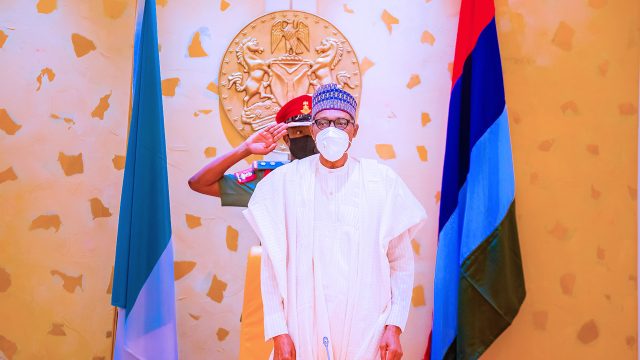By
Ebun-Olu Adegboruwa
According to the United Nations Development Programme Office, there are nine (9) core characteristics of democratic rule, to wit:
(i) Participation (ii) Rule of Law (iii) Transparency (iv) Responsiveness (v) Consensus (vi) Orientation (vii) Equity (viii) Effectiveness; and (ix) Efficiency.
1.1 Participation: The idea of popular participation is crucial to both democratization and development. It can be considered one of the determinants of democratic practice. Popular participation is the empowerment of the people to involve themselves in the regulating structures and designing policies and programmes that serve the interest of all and contribute optimally to the development process. How well has Nigeria ticked this box of popular participation since the inception of democratic rule in 1999?
The starting point would be the empowerment of the masses in terms of qualitative basic needs. Food, shelter, clothing, education and secured access to health care are important for participation in the democratization process, as you cannot pauperize a citizen and turn around to preach democracy and human rights to him. This was the reason June 12, 1993, General Elections recorded high participation as the electorate saw the prospects of a better life with the election of Chief M.K.O Abiola as president. In the absence of food, shelter and other basic needs, the electorates will sell their votes on the day of the election and make mincemeat of quality participation in the democratization process, as happened in Ekiti State recently. In that kind of process, democracy has lost its value. 3.2 Rule Of Law: The difference between tyranny, dictatorship and democracy in my view is the regulatory effect of law on society. The rule of law is the legal principle that law should govern a nation as opposed to the State being subject to the caprices of a few powerful individuals.
The rule of law refers to the supremacy of the law, particularly as a constraint upon the behaviour including the behaviour of government officials. In this sense, the rule of law stands in contrast to autocracy, dictatorship or oligarchy where the rulers are held high above the law. It is in this wise that the learned jurist, Obaseki JSC (as he then was), in the case of Governor of Lagos State v Ojukwu (1986) NWLR (part 18) 621, made the following remarks:
‘The Nigerian constitution is founded on the rule of law the primary meaning of which is that everything must be done according to law. It also means that government should be conducted within the framework of recognised rules and principles which restrict discretionary power which Coke colourfully spoke of as a ‘golden and straight wand of law as opposed to the uncertain and crooked cord of discretion.’ How well does Nigeria tick this box of the rule of law in Nigeria’s democratization process? The starting point would be that the government of the day acquired power by law and as such should respect the laws of the land. Abortion, it should also govern according to law, in order to instil a sense of lawfulness in the citizens. A situation where the executive arm of government intimidates and muscles the judiciary does not stand well with the rule of law. Nobody is above the law and it falls back on the citizens of this country to ensure that the people whom they elect to power are accountable or kicked out at the next elections. This indeed is the power of democracy as, if the votes count, the election should be a weapon in the hands of the masses to hold leaders to account. Respect For Human Rights The United Nations General Assembly High-level Meeting on the Rule of Law, held on September 24, 2010, remarked as follows: ‘Human rights, the rule of law and democracy are interlinked and mutually reinforcing and they belong to the universal and indivisible core values and principles of the United Nations.’ Indeed, government responsiveness to the interests and needs of the greatest number of citizens is strictly associated with the capacity of democratic institutions and processes to bolster the dimensions of rights, equality and accountability.’ We make bold to say that nobody wants to live in a society where the rule of law gives way to the rule of tyranny, brutality and flagrant contravention of human rights. This is why we speak loudly and fight against executive lawlessness, contravention of the right to life, the dignity of the person, the right to personal liberty, right to freedom of expression, freedom of religion and expression, the right not to be discriminated against by reason of tribe and religion, etc. 3.3. Transparency: According to the IMF, transparency in government includes the following: i. Clarity of the structures and functions of government, responsibilities within government and relations within government and the rest of the economy.
ii. Public availability of comprehensive information on the public sector, financial stocks and flows published at specified times.
iii. Public availability of information on how budgets are prepared and executed, and minimum content of budget and financial reports.
iv. Financial data, meeting and accepted quality standards and subjected to independent audit scrutiny.
To be continued tomorrow Adegboruwa is a Senior Advocate of Nigeria (SAN).

